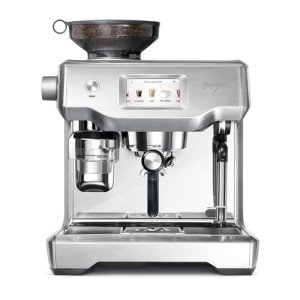The Rise of Home Espresso Machines: A Comprehensive Guide
As coffee lovers continue to look for fresh and tasty brews in your home, the popularity of home espresso machines has risen over the last few years. No longer simply the domain of cafes and coffee bar, these machines empower individuals to craft barista-quality espresso beverages from the comfort of their kitchen areas. This post will check out the different types of home espresso machines, their functions, and considerations for picking the ideal one. In addition, it will supply a selection of FAQs to assist potential purchasers make notified decisions.
Kinds Of Home Espresso Machines
Home espresso machines can be categorized into several categories based on their systems and user-friendliness. Each type has its distinct features, pros, and cons.
| Type | Description | Pros | Cons |
|---|---|---|---|
| Manual Espresso Machines | Requires the user to by hand manage the brewing process, including methods like pulling a lever to create pressure. | - Complete control over brewing process - Compact style | - Requires skill and practice - Time-consuming |
| Semi-Automatic Machines | Machine automates water flow and pressure, however the user still controls the dosing and duration of the brewing process. | - Balance of automation and control - Versatile | - Learning curve for improving methods |
| Fully Automatic Machines | Automates the entire brewing process, from grinding to developing, often with programmable settings for tailored beverages. | - Extremely user-friendly - Quick and practical | - Less control over the brewing process - Higher rate point |
| Capsule or Pod Machines | Utilizes pre-packaged espresso pills or pods to develop coffee quickly and quickly. | - Extremely easy to use - Minimal clean-up | - Limited flavor range - More costly per cup than ground coffee |
| Super-Automatic Machines | Combines features of completely automatic machines with built-in mills, enabling users to brew whole bean espresso and milk-based beverages with one touch. | - All-in-one benefit - Ideal for milk-based drinks | - Often the most costly - Can be bulky |
Functions to Consider
When picking a home espresso machine, potential purchasers ought to consider the following features to ensure they select a machine that meets their needs:
Grinder Type:
- Built-in grinders can supply fresher premises but might require more upkeep.
- Different mills enable more customization of grind size.
Pressure:
- Look for machines that produce a minimum of 9 bars of pressure, which is optimum for developing espresso.
Water Temperature Control:
- Machines with adjustable temperature settings permit for much better extraction of taste from beans.
Milk Frothing Options:
- Consider whether you desire a manual steam wand for frothing or an automatic milk frother for benefit.
Reduce of Cleaning:
- Machines with removable parts and self-cleaning functions significantly reduce cleanup time.
Size and Design:
- Ensure the machine fits easily in your kitchen and aligns with your aesthetic preferences.
Budget:
- Set a budget before starting your search, as costs can range significantly from affordable designs to high-end machines.
Advantages of Home Espresso Machines
Owning a home espresso machine provides numerous advantages:
- Cost-Effective: Over time, developing espresso in the house can conserve coffee lovers cash compared to regular café check outs.
- Modification: Users can explore various beans, grind sizes, and brewing techniques to find their perfect cup.
- Convenience: The ability to brew espresso whenever eliminates the need to head out to a coffee shop, specifically beneficial during late nights or mornings.
- Quality Control: With a home machine, people have total control over the quality of active ingredients and brewing procedures.
Disadvantages of Home Espresso Machines
However, there are some disadvantages to think about:
- Initial Investment: High-quality espresso machines can be pricey, requiring a substantial upfront financial investment.
- Knowing Curve: Mastering the art of espresso developing can take time and practice, which may be frightening for newbies.
- Upkeep: Like any appliance, espresso machines require routine cleaning and upkeep to make sure optimal efficiency.
FAQs
1. What is the best kind of home espresso machine for newbies?
Response: For novices, a semi-automatic machine is often recommended as it offers a balance between control and automation, allowing you to find out the essentials without overwhelming complexity.
2. Just how Espresso Machine Clearance Sale should I invest in a home espresso machine?
Response: Entry-level machines can start around ₤ 100 to ₤ 300, while higher-end designs can vary from ₤ 500 to over ₤ 2000. It's vital to set a budget based upon your anticipated use and wanted functions.
3. Do I require a separate grinder?
Response: While some espresso machines include built-in mills, buying a different grinder allows for greater modification and guarantees much better quality grounds.
4. How typically should I clean my espresso machine?
Response: Cleaning frequency can vary by machine type, but it's normally suggested to clean up the machine after each use and carry out deep cleansings weekly or month-to-month, depending on usage.
5. Can I make milk-based drinks with any espresso machine?
Response: Not all machines include milk frothing abilities. If you delight in beverages like lattes or coffees, try to find a machine with a steam wand or automatic frother.
Home espresso machines are changing the method coffee aficionados enjoy their cherished brews. With numerous types and advanced functions available in the market, there is something for everybody. Whether it's the pleasure of creating special recipes or just savoring the ideal shot of espresso, investing in a home espresso machine can boost both the coffee-drinking experience and the lifestyle for coffee enthusiasts everywhere. Just like any investment, it is crucial to weigh the benefits against the potential downsides and select a machine that flawlessly fits both your way of life and choices.

